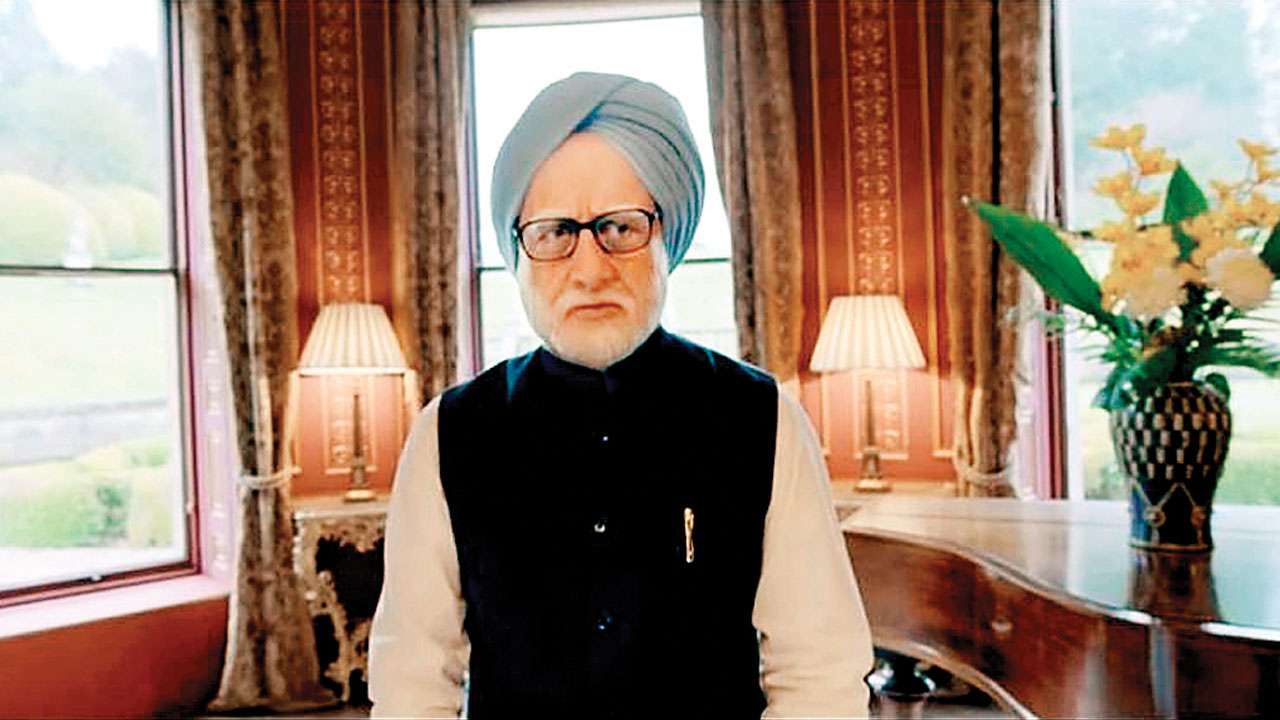
I was in no hurry to see The Accidental Prime Minister. Despite whatever curiosity combined and controversy the film attracted since its release last week, I felt it was likely, in the end, to disappoint. That’s because it’s nearly impossible to make convincing, let alone critically acclaimed, movies about contemporary politics. We are too close to the people and events involved. The borderline between politics and propaganda being so thin, such films are bound to be slammed by those they displease.
Books, of course, are different. In a book, you can say things with a certain degree of precision, even admitting to what cannot be told. Non-fiction books can maintain a veneer of objectivity, while movies, even documentaries, end up looking and sounding like fiction. Our political personalities, already portrayed and analysed in the media as a part of the daily tamasha of Indian politics, are larger than life. Cinematic representations pale in comparison, making political persons appear like caricatures rather than characters.
No surprise that former Prime Minister, Manmohan Singh, despite Anupam Kher’s histrionic exertions, ends up not just weak and wimpy, but ineffective and unsuccessful. This is quite unlike the book, where Baru praises his personal integrity, administrative skills, and political acumen. In contrast, played rather creatively by Akshaye Khanna, Baru in the movie comes across as a flamboyant and dapper mover and shaker. However, as several critics have pointed out, Baru, in real life, wasn’t all that important a political actor. As former National Security Advisor M. K. Narayanan put it somewhat uncharitably, “He was nobody.” But the nature of the narrative is such that the storyteller ends up much more important than he possibly was. The very fact that he is not so well-known makes Khanna play Baru in an unusual and inventive manner. Quite the opposite, Manmohan Singh’s role constrains and limits Kher.
In the end, the film reveals nothing more than is already known in the public domain. Except the interesting twist in the tale — did Baru betray his master? Manmohan Singh is seen cutting him dead, with the PMO officially dismissing the book. The viewer is left to make his or her own judgement on the ethics of kissing and telling, in this case, writing about one’s former bosses and patrons. Isn’t it inevitable that both the book, released in 2014 on the eve of the general elections which brought Narendra Modi to power, and the film, released 90 days before the 2019 general elections, are fated to be read politically?
Which is what brings us to the implied, if not main, upshot of the film. If Manmohan Singh was the “accidental” Prime Minister, then Narendra Modi is his diametric opposite, the most intentional of Prime Ministers. Not just the movie, but the unfolding “reel” of Indian politics has profiled these two prototypes for voters’ consideration. Do we want a weak or a strong PM? Do we prefer two power centres or one? Is the party President or head of a political family more important than a serving PM?
In this context, former President Pranab Mukherjee’s telling appraisal to Baru is pertinent. “As long as the Prime Minister’s image is good,” Mukherjee said to Baru in 2011, “so, too, the image of the government and the country. When the image of the PM suffers, the government’s image, and the country’s, also suffers.” No wonder the BJP has tried to shield their PM not only from the recent election debacles, but also from other debris and detritus of the rough and tumble of Indian politics. But the big question is whether an intentional, even strong Prime Minister, as Modi certainly has proved himself to be, is alone sufficient to power his party to victory in the forthcoming hustings. Only the actual results will tell.
As it happened, I watched the Accidental Prime Minister after another, albeit much gloomier, political biopic. Adam McKay’s Vice starring former Batman Christian Bale as Dick Cheney was praised by some for being “bitingly clever,” while others dismissed the film for its “clumsy display of political hatred.” The film gathered many awards though, including the “Best Actor” Golden Globe for Bale’s prosthetically modified virtuoso performance as Cheney.
Vice was a black comedy, darkly sinister, and terribly self-flagellating. Accidental Prime Minister, one the other hand, is light-hearted, even cheery. It both trivialises and satirises Indian politics. That speaks volumes about us. We are, after all, political optimists — despite the terrible terrorist strike on Mumbai on 26/11 2008, which the film glosses over. In addition to all the scams, they will remain blots, hard to forgive or forget, on Manmohan Singh’s two-time tenure as India’s “accidental Prime Minister”.
Author is Director, IIAS, Shimla Views are personal